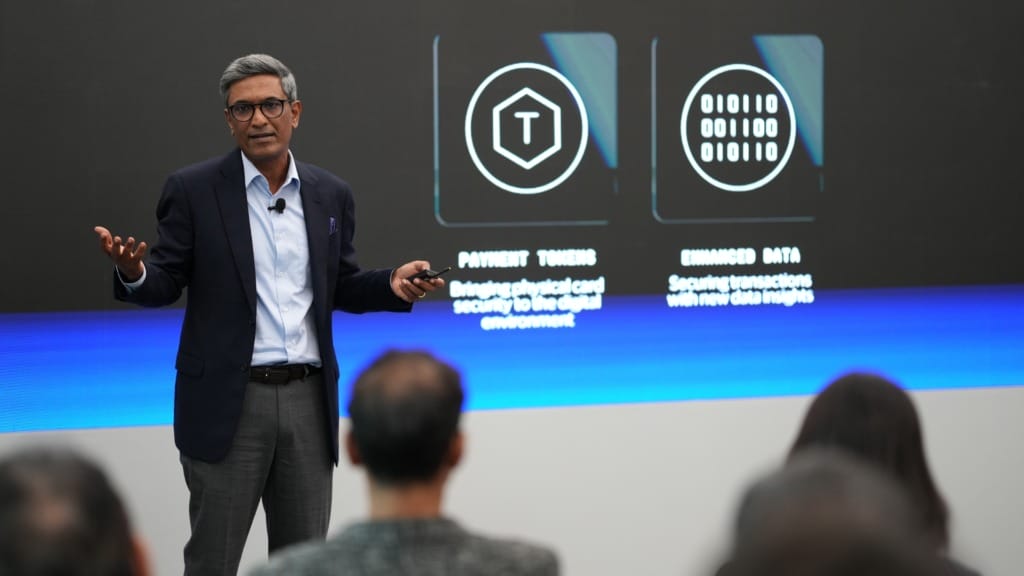Visa announces new AI-powered solutions to transform commerce in Asia Pacific
Visa unveils AI-driven products, stablecoin support and new partnerships to redefine digital commerce across Asia Pacific.

Visa has unveiled a series of AI-driven innovations and strategic partnerships aimed at reshaping commerce in Asia Pacific. These announcements were made during the Visa Asia Pacific Media Showcase in Singapore, where the company outlined its vision for a secure, flexible and intelligent payment ecosystem powered by artificial intelligence.
Table Of Content
According to Jack Forestell, Visa’s Chief Product and Strategy Officer, the company is leveraging its global network and innovation leadership in the region to bring new products and solutions that will transform commerce and deliver trust and security to AI-enabled payments across the region.
The showcase emphasised the role AI will play in the near future of commerce, where intelligent agents will handle tasks like browsing, purchasing and managing transactions on behalf of users. Visa’s latest suite of AI-enabled tools aims to offer banks, fintechs, merchants and AI platforms seamless integration into Visa’s global network, enhancing both security and user experience.
Visa Intelligent Commerce launches with support from regional giants
A key highlight of the event was the launch of Visa Intelligent Commerce, a platform designed to support the next wave of AI-powered commerce across Asia Pacific. The initiative includes a new suite of APIs and a commercial partner programme that enables AI platforms to embed Visa’s capabilities at scale.
Visa is currently exploring collaborations with Ant International, Grab, and Tencent to roll out this solution. These companies represent major players in digital finance and services: Ant International specialises in digital payments and fintech, Grab is Southeast Asia’s super app, and Tencent operates China’s Weixin/WeChat ecosystem.

The company aims to empower AI agents to make purchases using Visa’s 4.8 billion credentials at millions of global merchants. T.R. Ramachandran, Head of Products and Solutions for Visa Asia Pacific, said, “We believe AI agents will play a growing role in commerce, from handling routine purchases such as ordering food, to more complex purchases such as securing event tickets or making travel reservations.”
Expanding product portfolio with stablecoins and Flex Credential
Visa also announced expansions to its existing product line-up, targeting the evolving needs of consumers and businesses.
In digital currency, Visa is expanding its support for stablecoins, enabling stablecoin-backed cards and settlements. Consumers can now use Visa to purchase stablecoins with fiat and spend them at merchants worldwide. In Asia Pacific, Visa is partnering with DCS Singapore, DTC Pay and StraitsX for these stablecoin card solutions. The company has already processed over US$225 million in stablecoin settlements and is working with StraitsX to enable seven-day-a-week stablecoin settlements.
The Visa Tokenized Asset Platform (VTAP) was also featured, offering partners a system for issuing and managing fiat-backed tokens and providing connections to both public and private blockchains. Visa intends to expand VTAP access into 2026.
In Japan, the Visa Flex Credential continues to gain momentum. Originally launched with Sumitomo Mitsui Banking Corporation and Sumitomo Mitsui Card Company as the Olive card, this next-generation credential allows users to toggle between debit, credit and rewards. More than 5 million Olive accounts have been issued, with average spending 40% higher than Japan’s national average.
Visa and SMCC have since adapted the Flex Credential for small businesses, enabling users to switch between personal and business accounts on a single card. Visa is also planning to introduce the Flex Credential in Vietnam in collaboration with local banks.
New payment partnerships and digital identity services
To further enhance the payment experience in the region, Visa is rolling out new services and partnerships to simplify how people and businesses transact.
Visa Pay, a new service, will allow users to link any participating digital wallet to any Visa-accepting merchant, whether in-store or online. It is launching across Asia Pacific with support from partners such as LINE Pay in Taiwan, Maya in the Philippines, OpenRice in Hong Kong, and Woori Card in South Korea. This aims to give consumers more flexibility when making global payments by tapping, scanning or paying online.
The company also introduced new digital identity solutions such as Passkeys, Tap to Confirm and enhanced transaction data features. These tools aim to simplify authentication while improving payment security and approval rates. New partners for these initiatives include Australian supermarket chain Coles and Malaysia’s Maybank.
Finally, Visa announced Visa Accept, a new service launching in Vietnam that enables micro-sellers to receive contactless payments using any NFC-enabled smartphone. Street vendors, freelancers and rural sellers will be able to accept payments directly into their Visa debit cards through their bank’s mobile app, offering a simpler way to manage sales without additional hardware.
















